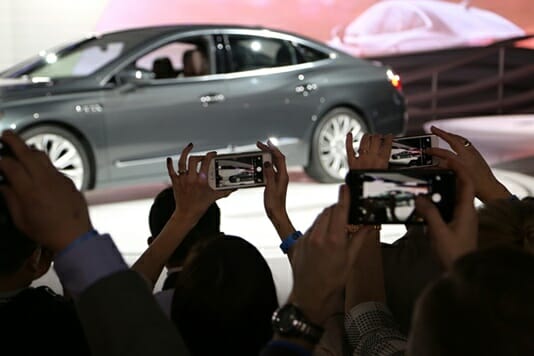Connectivity and the Auto Industry: A Brand New Shift Among Automakers Will Ultimately Benefit Consumers
Photo by David McNew/Getty
The world of connected technology is evolving at a dramatic pace, and its impact on a long list of big business industries has been significant. The auto industry, in particular, is undergoing a massive shift as a direct result of rapidly improving connectivity and digital options. With more auto manufacturers partnering up with software companies dedicated to providing connectivity solutions through cloud computing and the Internet of Things, a new focus has been placed on personalizing the user experience and marketing to individuals rather than generalized user groups. While this provides an excellent new marketing avenue for car companies, it also means a better future in car buying for consumers.
Connectivity will be considered the norm even more than it is now.
We’re used to seeing Bluetooth connection options and advanced GUI control panels in new cars – that’s been the norm since the advent of Onstar. But with connected technology becoming increasingly less expensive to create and increasingly more available, we’re about to experience a new level of connectivity in years to come. Gartner predicts new vehicles with data connectivity options (either a direct connection from within the vehicle, or by connecting to a mobile device) will increase to 61 million by 2020.
An increased ability to connect to apps and other information you have in a cloud will make it easier to interact with the world around you – all without leaving your vehicle. Your vehicle could recommend what coffee to order from your favorite cafe based on your ordering history, time of day, and any specials the shop has going on. In addition to exciting real-world connection options like this, safety features and automated driving are becoming more fine-tuned and easier than ever to use.
-

-

-

-

-

-

-

-

-

-

-

-

-

-

-

-

-

-

-

-

-

-

-

-

-

-

-

-

-

-

-

-

-

-

-

-

-

-

-

-








































